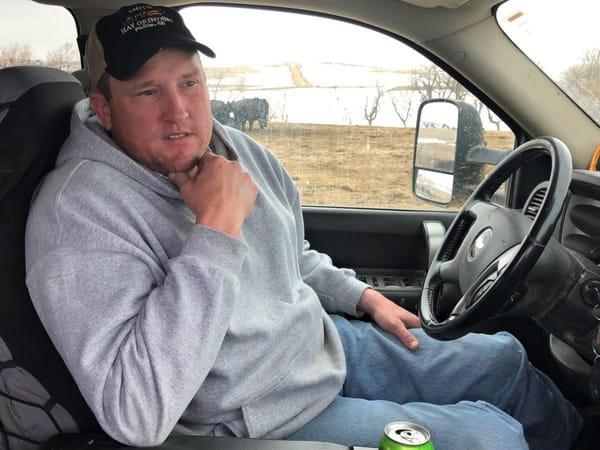Title: Content Director
Contact: 605-937-9398 / bart.pfankuch@sdnewswatch.org
Language spoken: English
Demographic expertise: South Dakota, including the Rapid City area, the Black Hills, rural towns and reservations
Topic expertise: agriculture, state government, education, rural issues, Indigenous people, poverty
Potential conflict of interest: Pfankuch serves on the board of the Oyate Prevention Coalition in Rapid City, which works to prevent substance abuse among Native American youth. He will recuse himself from reporting on the organization.
Biography: Pfankuch (pronounced FAN-cook) is Wisconsin native and former editor of the Rapid City Journal. He has worked for more than 30 years as a reporter and editor at newspapers in Wisconsin, Florida and South Dakota, including as reporter or editor at the Eau Claire Leader-Telegram and Capital Times in Wisconsin, and at the Florida Times-Union and Sarasota Herald-Tribune in Florida. He also is a syndicated writing coach who has presented at newspaper conferences across the country. Pfankuch has won more than four dozen state, regional and national journalism awards, including, while at News Watch, agricultural writer of the year from the North American Agricultural Journalists association in 2020, 2021 and 2023 as well as first-place reporting awards in the Great Plains Journalism Awards sponsored by the Tulsa Press Club and South Dakota NewsMedia Association. Pfankuch lives in Black Hawk.
Professional memberships: Investigative Reporters and Editors, North American Agricultural Journalists, South Dakota NewsMedia First Amendment Committee
Social platforms: X/Twitter; LinkedIn
Archive of work: South Dakota News Watch

Bart Pfankuch
Total 337 Posts
Public vaping ban passed in South Dakota amid some controversy
On July 1, the use of e-cigarettes or other vaping products will become illegal in almost all South Dakota workplaces and public buildings, including bars, restaurants and casinos.
After a somewhat hurried process, lawmakers in March voted to treat e-cigarettes the same as combustible tobacco products when used in public
South Dakota infants still dying at a high rate due to sleep issues
South Dakota infants are dying in their sleep at a rate far higher than the national average and above neighboring states, but new efforts are underway to save babies from a cause of death that health experts say is mostly preventable.
From 2013 to 2017, more than 70 percent of
Stressed farmers face continuing economic decline
WALL, S.D. – A five-year slide in the agricultural economy in South Dakota and across the Great Plains has left many producers operating at a loss and is putting some in jeopardy of losing their farms.
A major decline in most commodity prices is the primary cause of the losses,
Thousands of South Dakota voters don’t live where they register
Thousands of people who don’t live in South Dakota have become official residents, gotten registered to vote and then cast ballots in state elections, which some lawmakers and election officials fear could unfairly alter election results or open the door to fraud.
State election officials say they are aware
Rural health initiatives fill life-saving gaps in remote areas
BISON, S.D. – Obtaining quality medical care is difficult for the roughly 350 residents of Bison and studies show that they and others living in remote rural areas of America have a higher mortality rate as a result.
The northwestern South Dakota town lies about 30 miles from the North
Lawmakers spar over potential reduction in state sales tax rate
A debate is raging in Pierre this legislative session over how – and some say even if – taxpayers will see a reduction in the sales tax rate now that South Dakota has begun to collect new money from online retailers.
When it comes to legislative intrigue, the contentious wrangling over the
Thousands of South Dakota children are trapped in poverty
RAPID CITY, S.D. – More than 40,000 South Dakota children, from infants to teenagers, live in families with incomes low enough to qualify for the federal food stamp program, creating challenges for a fruitful childhood and a prosperous adult life.
The number of children in South Dakota families receiving

